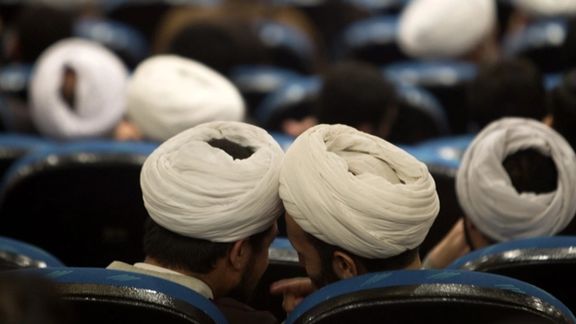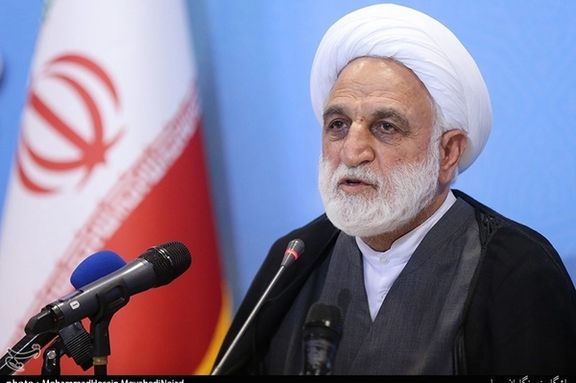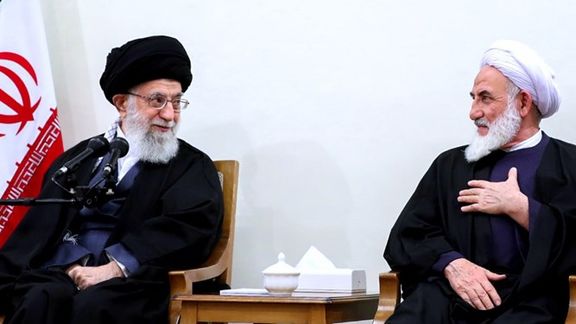Calls For Swift Measures As Attacks On Iran Clerics Escalate

Following three attacks on clerics in Iran in less than one week, Chief Justice Gholamhossein Mohseni Ejei called for swift and strict measures against the attackers.

Following three attacks on clerics in Iran in less than one week, Chief Justice Gholamhossein Mohseni Ejei called for swift and strict measures against the attackers.
Conservative Nameh News quoted Ejei as saying, "The enemies are hatching conspiracies to undermine Iran's security," but he did not say who the enemies were.
Several Iranian politicians and journalists had warned earlier that the government's violent treatment of Iranian protesters will entail similar reaction by the people.

On April 26, a guard at a bank in Babolsar by the Caspian Sea shot Abas Ali Soleimani, a high-ranking cleric who was a member of Iran's Assembly of Expert and a former provincial representative of Supreme Leader Ali Khamenei. The cleric died instantly but the case remains a mystery.
His family say he was at the bank to transfer some money, but social media users say one does not need to go to a bank to transfer money. Another account of the event indicates that the guard, a former policeman killed the cleric when he found out that he was waiting to withdraw a huge amount of money. According to witnesses on the scene the frustrated former policeman was having financial problems and was angry about inequalities in society.
Later, another cleric, a young man was run over by a car and was dragged in the streets for quite a while before the driver steered away and escaped.

In one of the latest violent events against clerics, early in the morning of April 29, a car ran over two seminary students [clerics] at a bus stop in in Qom. Subsequently, the driver came out and stabbed one of the clerics. The stabber then attacked the police and wanted to disarm them, but he was finally arrested by the "brave policemen."
There is also an unconfirmed anecdotal account of two other clerics who were tied up to a tree and harassed by youngsters in Qaleh Hassan Khan in southwest Tehran.
A cleric in Qom, Alavi Boroujerdi, has criticized the government for creating the divide between the people and the clerics. He reiterated that the government has made mistakes.
He told state officials, "Do not say anything to annoy the people. It is unthinkable to see a cleric being run over in the street in a religious city such as Qom and then stabbing the poor man to make sure that he is badly wounded. Is this the way the people used to treat us?" asked Alavi Boroujerdi.
Chief Justice Ejei told Judiciary officials, "do not waste any time as soon as the attackers have been arrested, make them taste justice!" This was exactly the kind of words Boroujerdi advised officials to avoid if they do not wish to annoy the people.
During previous weeks, while the government was keen to enforce compulsory hijab rules as women defied the imposed lifestyle and took to the streets, many clerics, particularly those in the government used vulgar words about Iranian women and some politicians such as the hard-line editor of Kayhan daily, Hossein Shariatmadari, suggested that unveiled women should be deprived of the social rights and their ID cards should be confiscated.
Among those who criticized Shariatmadari for the comment was a female adviser to President Ebrahim Raisi, Sakineh Sadat Pad who called the suggestion "illegal."